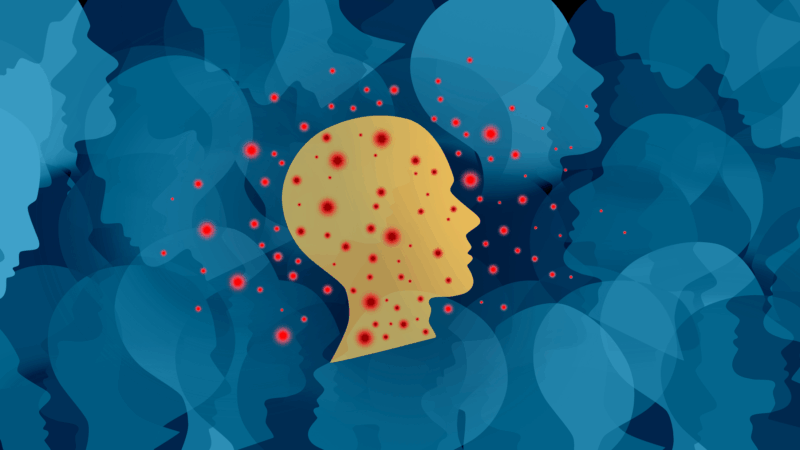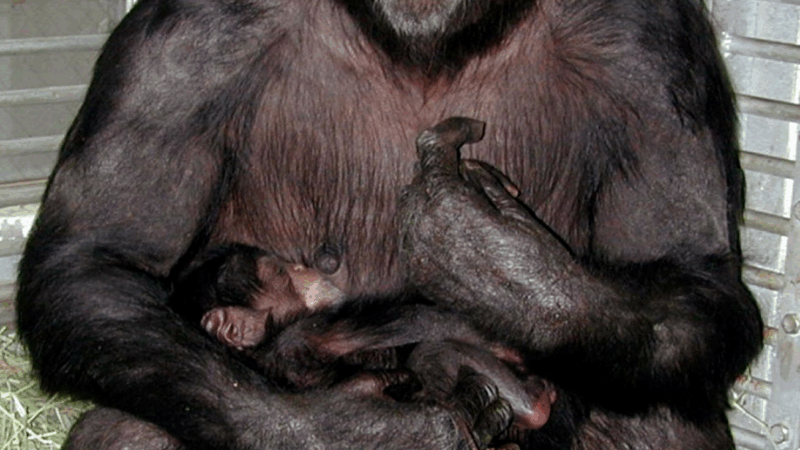Like measles, misinformation is spreading, poll finds
The U.S. has now reported more than 800 measles cases in 24 states. The vast majority of cases — more than 600 — are in Texas. In the midst of the outbreak, a new poll shows how much misinformation people are seeing about measles.
The good news is the vast majority of people still have confidence in the safety of the measles vaccine, says Liz Hamel, director of public opinion and survey research at KFF, a nonprofit health policy research organization which conducted the poll.
The bad news: People are being exposed to a lot of false claims about measles — and many don’t know what to make of it.
“What we have seen is that a large share of people are at least somewhat uncertain about how to evaluate that misinformation,” Hamel says.
The survey was conducted earlier in April and included a nationally representative sample of 1,380 adults. Pollsters asked respondents about three false claims: that the measles vaccine is more dangerous than getting the disease; that the vaccine causes autism in children, and that vitamin A can prevent a measles infection. None of these things are true.
Only 5 percent of adults polled said they thought these falsehoods were definitely true, and a much larger share of respondents said they were “probably false” — but they weren’t completely confident that these were falsehoods. Hamel says that shows there’s a large group of people out there whose views on measles have room for uncertainty.
And a significant proportion leaned toward saying these false claims about measles are probably true. For example, 1 in 4 adults polled said vitamin A either probably or definitely prevents measles. And 19% believed it was probably or definitely true that the measles, mumps and rubella vaccine is more dangerous than getting infected with measles.
The poll also found a clear political divide.
“We see that Republicans are much more likely than Democrats to lean towards believing this misinformation about measles,” Hamel says. “And that’s true among parents as well.”
Most parents in the poll said they do keep their children up to date on their recommended vaccines.
But among parents who said that at least one of these false claims was probably or definitely true, 1 in 4 said they’d either skipped or delayed some recommended vaccines for their kids.
“Those parents are more than twice as likely to say that they have delayed or skipped some vaccines for their children compared to parents who don’t believe any of those claims,” Hamel says, adding, “I think this is one of the more concerning findings from the poll.”
Hamel says one big takeaway is that in a world where people are bombarded with health information — and misinformation — on all kinds of media platforms, they don’t always know how to evaluate what they’re hearing or reading or who to trust.
Edited by Jane Greenhalgh
Trump says 8 EU countries to be charged 10% tariff for opposing US control of Greenland
In a post on social media, Trump said a 10% tariff will take effect on Feb. 1, and will climb to 25% on June 1 if a deal is not in place for the United States to purchase Greenland.
‘Not for sale’: massive protest in Copenhagen against Trump’s desire to acquire Greenland
Thousands of people rallied in Copenhagen to push back on President Trump's rhetoric that the U.S. should acquire Greenland.
Uganda’s longtime leader declared winner in disputed vote
Museveni claims victory in Uganda's contested election as opposition leader Bobi Wine goes into hiding amid chaos, violence and accusations of fraud.
Opinion: Remembering Ai, a remarkably intelligent chimpanzee
We remember Ai, a highly intelligent chimpanzee who lived at the Primate Research Institute of Kyoto University for most of her life, except the time she escaped and walked around campus.
The near death — and last-minute reprieve — of a trial for an HIV vaccine
A trial was about to launch for a vaccine that would ward off the HIV virus. It would be an incredible breakthrough. Then it looked as if it would be over before it started.
Bessemer data center developer to request rezoning for additional 900 acres
The city’s attorney informed council members of the request on Tuesday, warning that there may be media scrutiny.






